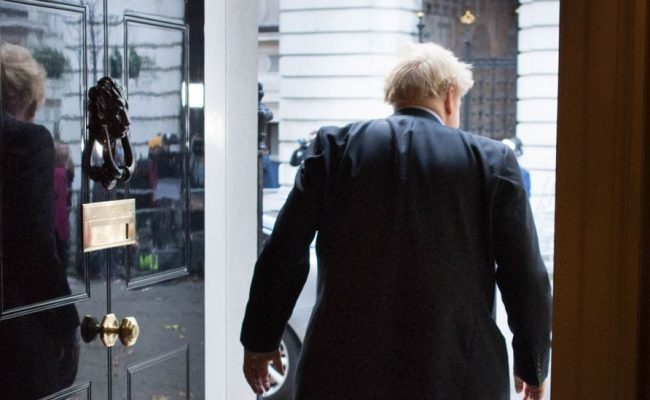Boris Johnson resignation: What happens now?
- Posted on
- Comment

Boris Johnson is set to resign as Conservative leader and will step down as prime minister when a new leader is found.
He quits Downing Street after less than three years in the job, despite having won a huge majority in the 2019 general election.
Outgoing prime ministers are expected to stay in office until a successor is found. But how does that happen?
How do the Conservatives elect a new leader?
Once a Conservative leader has stood down, an election for a new party leader is triggered. Under the current rules, candidates need the support of eight Conservative MPs to stand.
Once all the candidates have declared – if there are more than two candidates – Tory MPs will hold a series of votes until only two remain.
- in the first round, candidates must get 5% of the votes to stay in the running (currently 18 MPs)
- in the second round, they must get 10% (currently 36 MPs)
- in the following rounds, the candidate with the least number of votes is eliminated
When two MPs are left, all Conservative Party members around the country – so not just MPs – will vote for the winner.
The timescale for each contest is decided by the 1922 Committee of backbench MPs, and the committee could vote to change the rules before the contest takes place.
How is the next prime minister appointed?
Whoever wins the contest to lead the Conservatives, will become the leader of the party with the largest number of MPs in Parliament.
The Queen will therefore ask them to form a government.
Will there be a general election?
Not necessarily.
When a prime minister resigns, there is not automatically a general election.
The latest an election can be held is January 2025, but the new prime minister could choose to call an election before then.
How long will Boris Johnson stay in power?
Mr Johnson will continue as prime minister until the autumn, the BBC’s Chris Mason has reported.
This is fairly normal. He will stay in office until the Conservatives choose a new leader, as his predecessors Theresa May and David Cameron did when they resigned.
In theory, if he did want to go immediately, the Queen could appoint an acting leader, probably a member of the Cabinet, to take over until a new leader is found.
That would be a very unusual situation.
Who could replace Boris Johnson as prime minister?
At the moment, there is no obvious successor to Mr Johnson, but there are several potential candidates.
Former Cabinet ministers Jeremy Hunt and Sajid Javid have both previously stood for leadership and may choose to do so again.
Other possible contenders include:
- Former Levelling Up Secretary Michael Gove
- International Trade Minister Penny Mordaunt
- Ex-Chancellor Rishi Sunak
- Foreign Secretary Liz Truss
- Foreign Affairs Committee chair Tom Tugendhat,
- Defence Secretary Ben Wallace
- Chancellor Nadhim Zahawi
What powers does Boris Johnson still have?
Until he officially gives up the office of prime minister, Mr Johnson still has the same powers, in theory. In reality, he now lacks the authority to introduce any radical new policies
He will still represent the UK abroad and can continue to make public appointments or changes to his team of ministers.
One of his final acts in office is likely to be awarding knighthoods and appointments to the House of Lords in his resignation honours list.
-BBC






 (Selorm) |
(Selorm) |  (Nana Kwesi)
(Nana Kwesi)